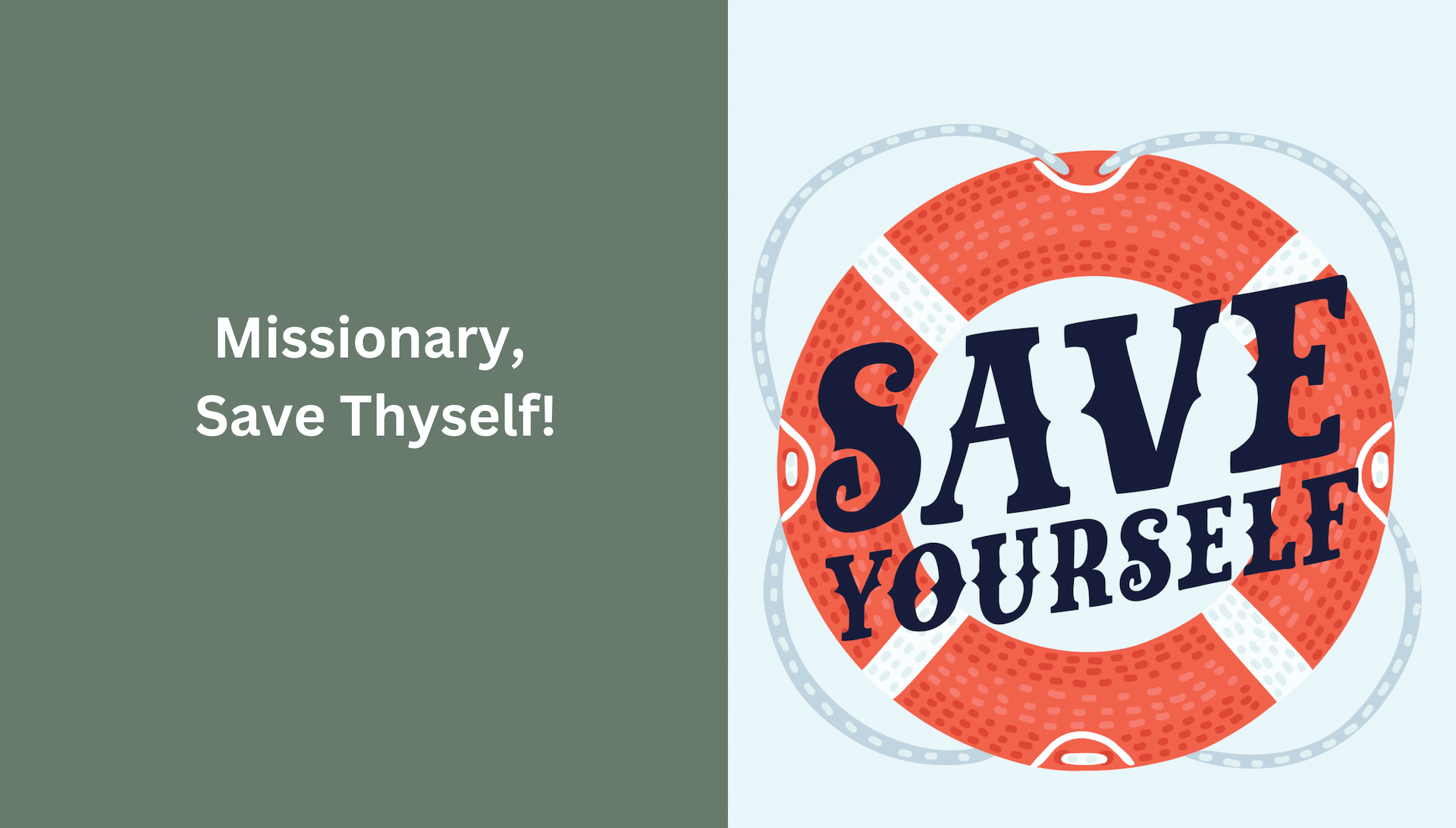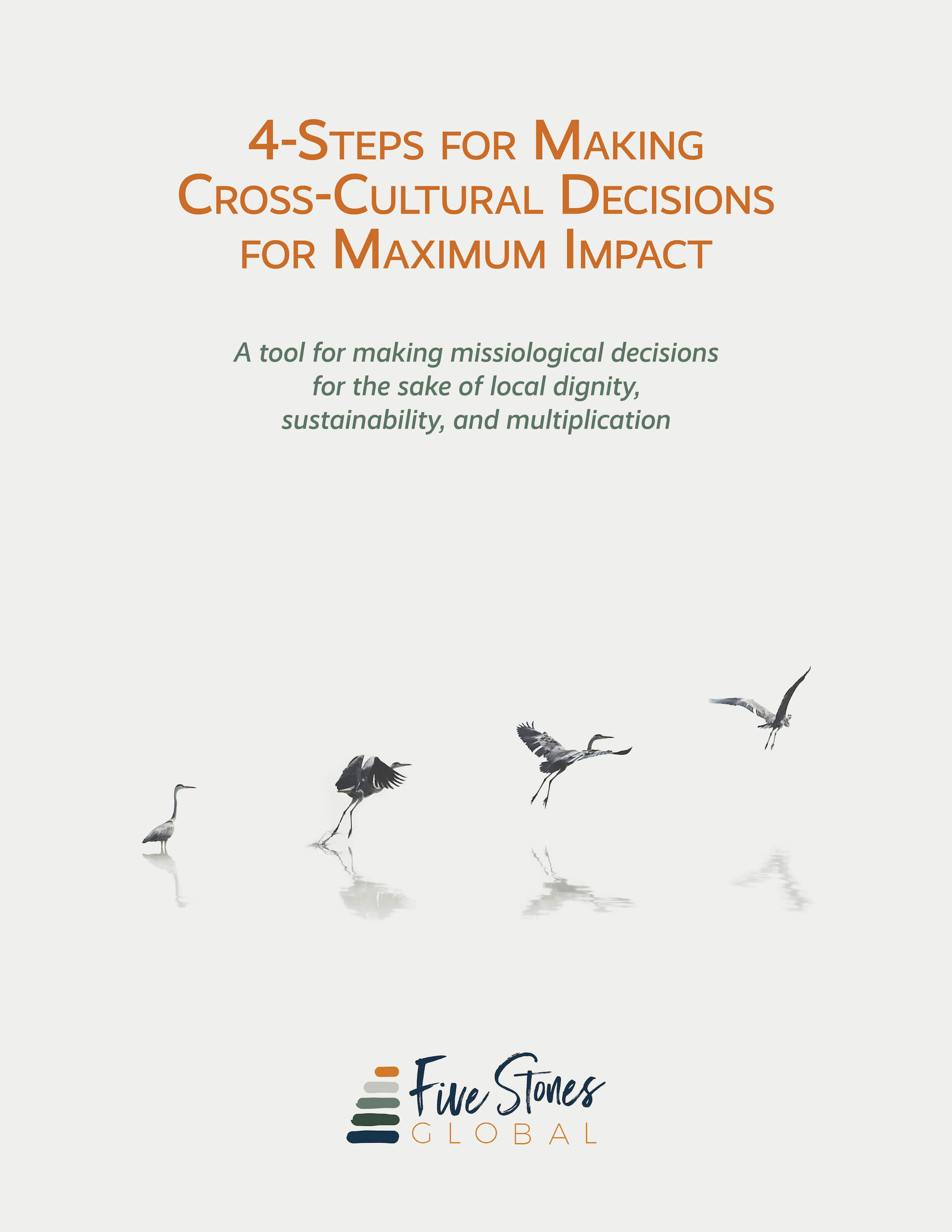Guest Blog by Ryan Kuja
Excerpt from Ryan’s book: From Inside Out: Reimagining Mission, Recreating the World
While serving with a Christian humanitarian organization in South Sudan, I worked with a Dinka man named Abijek who lived in a nearby village. He was employed by the organization to keep an eye on the goings-on in and around the compound where our team was based, which was comprised of little more than a flimsy straw fence surrounding the camping tents where we slept, four or five mud huts known as tukuls, and two white canvas storage tents used to store program supplies.
Abijek was a worker, always going far beyond what was required of him. He could have sat idly in a chair all the day long, leisurely keeping watch. But Abijek never did that. Instead, he worked hard eight to ten hours a day, six days of the week, doing whatever needed to be done, from repairing the tukuls to fixing the straw fence after a wind storm to hauling gravel across the village to a project site. And he never once complained about anything—not even when he got stung by the irksome scorpions that had a way of sneaking up at inopportune times, like when sitting on the pit toilet while sick with a gastrointestinal infection (which was not infrequent in the bush of South Sudan). The rest of us would yelp, shout, and curse when we made contact with the business end of those deviant little desert creatures. But not Abijek. He emanated a distinct radiance that reminded me of the saints of old, his face often emitting a resplendent glow. His ebullient energy would have been magnificent even in a place of abundance, but here, amid the paucity of resources and the stench of starvation, it was nearly inconceivable.
Yet, the most astonishing thing about Abijek is that he was deaf and mute.
One afternoon as Abijek was about to head home for the day, he walked over to me and made the sounds he always made when he was excited about something. He motioned for me to follow him and began walking toward the group of huts at the back of the compound. His pace got faster with each step he took.
I was barely able to keep up with his swift strides without breaking into a jog. He continued to wave his hand and beckon me along as I followed, easily gaining ten paces on me as he made a beeline for the tukul where we ate our meals, a makeshift mess hall in the bush. He turned quickly to his right as he ducked under the low entryway, where a door should have been, except there wasn’t, because one doesn’t come by doors in this part of the world all that often.
He walked over to the table that was piled high with a disarray of random papers, books, and food. With an intent single-mindedness, he reached for a Bible that was lying there and immediately flipped it open to the book of Romans. He scrolled down the page with his index finger, the dirt on its tip leaving a light brown mark scrawled across the page.
He pointed at the words of the next sentence, underlining them with his fingernail, nimbly tracing an invisible line beneath the words of Romans 8:1: “Therefore, there is now no condemnation for those who are in Christ Jesus.”
His face was again radiating that familiar countenance of sheer pleasure.
I read the words once and then a second time, nodding my head in agreement, trying to join him in his excitement in whatever it was he was trying to reveal to me. I assumed that he was attempting to show me that he was, as a Christian, free of condemnation. I told Abijek that I agreed with him and with the words.
He again pressed his index finger against the page, with more force upon each repetition, the radiant expression on his face beginning to shift into a look of sternness. He knew I was missing the message.
But what was the message?
I had heard this verse preached on and talked about and argued over. I had heard it a hundred times before, it had become just empty text. So what was Abijek’s fuss about? His effort to reveal some profound truth or insight to me was turning into an exercise in futility. And he didn’t have the ability to raise his voice and shout it out, to yell to me, “This is what I am trying to tell you. Wake up and see!”
A few more seconds passed and he closed the book, set it back down on the table, and walked out, his pace sluggish, his radiant countenance having eroded into the face of a man in disquietude. He began his long walk home for the evening, and I walked toward my tent.
The time I spent in South Sudan was marked by deep emotional and spiritual pain. And Abijek, the mender of the human spirit that he was, somehow could sense my pain, shame, and distress. This man living—surviving—in one of the most economically marginalized places in the world was trying to set me—a Westerner there to help his people—free.
I had come to South Sudan to serve, save, and sacrifice—what I call The Three S’s of Mission—and Abijek blew the whole thing up in a radical reversal of roles. He was the saved, I was the lost. He was the one serving me. He had the ability to love more fully. He was the one who had the words of life.
Abijek was like a silent prophet crying out in the wilderness, “Missionary, save yourself!”
Five Stones Global’s Response
One of Five Stones Global’s aim is to call the global mission community to stay clear of paternalistic attitudes and models that create co-dependency between the cross-cultural workers and the recipients of their efforts. Ryan offers us a inside look into how his flawed thinking was broken wide open like the Red Sea through Abijek’s prophetic role in his life. If we approach missions with a mindset that we are the ones who have come to serve, save, and sacrifice, we will set ourselves up for a type of neocolonialist missions. Let’s be and live in a way that we equally become recipients of service, salvation, and sacrifice. Thank you for this transparent story, Ryan. May we all learn and unlearn together.
Ryan Kuja is a writer, spiritual director, PhD-less theologian and missional practitioner. A global citizen, he has lived on the front lines of shalom in 15 cities and rural areas on 5 continents, from the slums of Kolkata to the townships of Cape Town, the bush of South Sudan to the comunas of Medellin. Ryan teaches on missional praxis, race & intercultural competency, spiritual formation, psychology, and the transformation of individuals and communities. His first book, From the Inside Out: Reimagining Mission, Recreating the World released in June.
Hungry for More Resources:
Link to From The Inside Out on Amazon
Link to We Are Not The Hero Book Link to We Are Not The Hero Participant’s Guide
Link to We Are Not The Hero Videos
Link to We Are Not The Hero E-book
Link to Go Light! GoLocal!: A Conscientious Approach to Short-term Missions
Link to Standing on Our Own Feet: How to Encourage Indigenous Churches to Operate from a Place of Dignity and Sustainability in Global Mission Workbook
Link to Disciplemaking Movements: https://Dmmsfrontiermission.com
** The majority of these resources are sold at fivestonesglobal.org and Amazon


